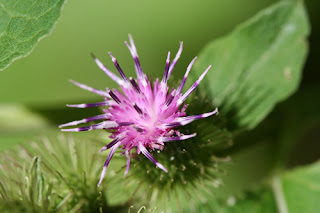Syed Akbar
Commiphora wightii or guggulu is used widely in homes in India, mainly to drive away evil
spirits. It is also used for religious ceremonies. Apart from its use for religious
purpose, guggulu is a natural medicine to reduce the body weight. It is a natural remedy
for people suffering from overweight and obesity. The gum latex of this plant has several
medicinal properties and many people burn it as incense for a feeling of goodness.
In English guggulu is known as Indian Bedellium and the plant is cultivated in many part
of the country. Readymade capsules of guggulu are available in herbal stores and several
weight loss programmes include it as part of the obesity treatment therapy.
It should be taken in small quantities for better results. In excess quantity it will
cause health problems like irritation, skin rashes, loose motions and headache. Pregnant
women should not use guggulu as it may cause miscarriage. Guggulu therapy is not
recommended for children too.
Herbal doctors recommend guggulu for health issues like urinary disorders, haemorrhoids,
high blood cholesterol and rheumatic pains. It is believed that guggulu reduces the blood
cholesterol levels and burns excess fat, keeping the body healthy.
-----------------
Home remedies
-----------------
Readymade guggulu capsules are available in herbal stores. Follow the course for weight
reduction. Alternatively, one may take small quantities of guggulu gum latex twice a day
to reduce the body weight, burn fat and control blood cholesterol levels.
Herbal doctors recommend smoke of guggulu for earache. According to them, one should take
a small piece of guggulu gum latex and burn it. The smoke can be directed towards the ear
in which there’s pain. Guggulu smoke therapy helps in giving relief from earache.
Guugulu extract can be mixed with sesame oil and gently massaged on the affected parts of
the body for relief from rheumatic pains and swelling of joints.
A little piece of guggulu gum, ginger and honey can be taken to control the body weight
and fight obesity.
Commiphora wightii or guggulu is used widely in homes in India, mainly to drive away evil
spirits. It is also used for religious ceremonies. Apart from its use for religious
purpose, guggulu is a natural medicine to reduce the body weight. It is a natural remedy
for people suffering from overweight and obesity. The gum latex of this plant has several
medicinal properties and many people burn it as incense for a feeling of goodness.
In English guggulu is known as Indian Bedellium and the plant is cultivated in many part
of the country. Readymade capsules of guggulu are available in herbal stores and several
weight loss programmes include it as part of the obesity treatment therapy.
It should be taken in small quantities for better results. In excess quantity it will
cause health problems like irritation, skin rashes, loose motions and headache. Pregnant
women should not use guggulu as it may cause miscarriage. Guggulu therapy is not
recommended for children too.
Herbal doctors recommend guggulu for health issues like urinary disorders, haemorrhoids,
high blood cholesterol and rheumatic pains. It is believed that guggulu reduces the blood
cholesterol levels and burns excess fat, keeping the body healthy.
-----------------
Home remedies
-----------------
Readymade guggulu capsules are available in herbal stores. Follow the course for weight
reduction. Alternatively, one may take small quantities of guggulu gum latex twice a day
to reduce the body weight, burn fat and control blood cholesterol levels.
Herbal doctors recommend smoke of guggulu for earache. According to them, one should take
a small piece of guggulu gum latex and burn it. The smoke can be directed towards the ear
in which there’s pain. Guggulu smoke therapy helps in giving relief from earache.
Guugulu extract can be mixed with sesame oil and gently massaged on the affected parts of
the body for relief from rheumatic pains and swelling of joints.
A little piece of guggulu gum, ginger and honey can be taken to control the body weight
and fight obesity.

No comments:
Post a Comment